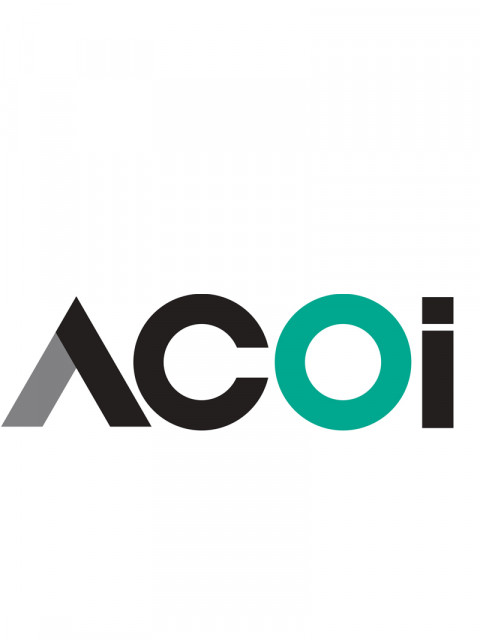
January Government Affairs Updates
by ACOI
January 3, 2025
Short-Term Extension for Telehealth Flexibilities
On December 21, President Joe Biden signed into law the American Relief Act that includes disaster relief and funds the federal government through March 14, 2025 while lawmakers continue to negotiate a Fiscal Year 2025 spending bill.
The bill also includes short-term extensions of several healthcare programs and policies, including an extension of the COVID-era telehealth flexibilities through March 31, 2025, which means Medicare patients can continue to access telehealth wherever they are located; they do not need to be at an originating site, and there are no geographic restrictions.
The bill also temporarily delays scheduled reductions to the Medicaid Disproportionate Share Hospital program and provides short-term funding extensions for the National Health Service Corps and the Teaching Health Centers Graduate Medical Education Program.
Lawmakers can extend these and other programs for a longer duration, as well as halt the 2.83 percent reduction to Medicare physician payment, as they negotiate a bill that will fund the government through the remainder of the 2025 fiscal year.
Prior Authorization Bill Dies in 118th Congress
Despite overwhelming congressional support—60 Senate and 231 House cosponsors—and a $0 cost estimate from the Congressional Budget Office (CBO), Congress did not pass the Improving Seniors’ Timely Access to Care Act (S.4532/ H.R. 8702) before the end of the 118th Congress.
Despite being thoroughly vetted over the past seven years, lawmakers began revisiting bill language in the closing weeks of 2024. Lawmakers sought to water down this consensus-driven, bipartisan bill to merely codify rules recently finalized by the Centers for Medicare and Medicaid Services (CMS), stripping away the bill’s essential transparency and oversight protections.
ACOI and the more than 500 organizations that support this legislation are calling for immediate action by the new 119th Congress to pass the bill so seniors enrolled in Medicare Advantage plans have long-overdue protections from unnecessary prior authorization delays and denials.
PBM Reform Lands on Chopping Block
Among the health policy provisions dropped from a short-term spending bill passed by Congress at the end of 2024 were changes to how pharmacy benefit managers (PBMs) do business. The reforms, which picked up broad, bipartisan support in Congress, would have:
- Forced PBMs to pass through 100 percent of rebates to sponsors of prescription drug plans in Medicare and the group health market;
- Prohibited PBMs from billing Medicaid more for drugs than what they reimburse to pharmacies; and
- Required more transparency on drug spending.
Currently, PBMs typically retain a percentage, or rebates paid to them by drug companies in return for placing their drugs on the PBMs formulary. When drugs have a higher list price, the more generous the rebate. Even though the bill would have prohibited PBM retention of rebates, nothing would have prohibited PBMs from raising their service fees.
The PBM industry fought aggressively against the provisions, while drug manufacturers have pointed to PBMs as the culprit of high patient out-of-pocket drug costs. A 2023 study by the Brookings Institution broadly concluded that the PBM reforms under consideration would have modest effects on the overall affordability of prescription drugs.
ACOI and other stakeholders advocated for the passage of the Safe Step Act (S. 652 / H.R. 2630) as a necessary compliment to PBM reform in an effort to crack down on PBM step therapy, or “fail-first,” practices. PBM rebating schemes that lead to formulary changes oftentimes require a patient to move to another drug when they are stable on current therapy—a practice that occurs with frequency among patients being treated with biologic therapies. The Safe Step Act was excluded from final negotiations and will remain a priority advocacy issue for ACOI in the next Congress.
Update: Baxter’s Manufacturing Recovery in North Carolina
Baxter issued an update on December 19 on the status of recovery efforts of its North Cove, North Carolina manufacturing facility following damage caused by Hurricane Helene. In the update, Baxter said that eight of the 10 manufacturing lines at the site have resumed and production at pre-hurricane levels across the plant is expected early in the first quarter of 2025.
The Food and Drug Administration (FDA) has provided continuous updates on products in shortage, including parenteral products that were already in short supply before operations were interrupted at the North Cove facility.
In response to shortages of IV solutions, Baxter received FDA authorization to extend the use dates of more than 50 IV and irrigation codes. Products now have an extended 24-month expiration period from the date of manufacture. This extension only applies to products manufactured prior to the end of September 2024.

